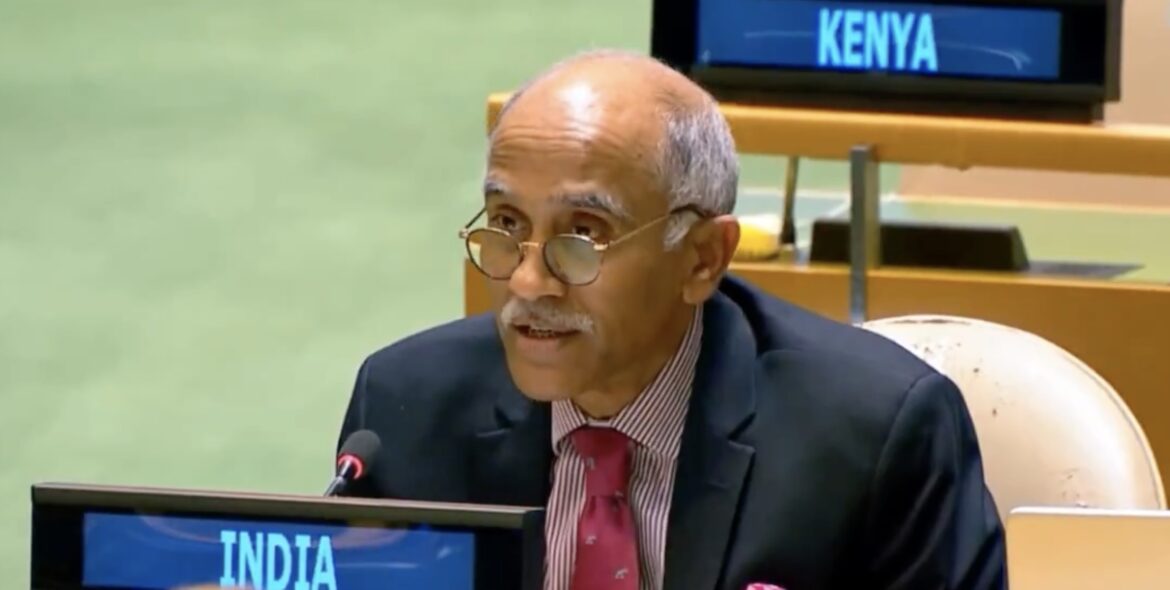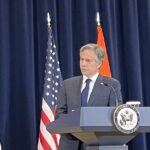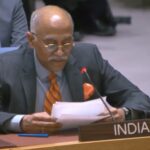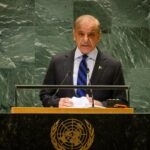India’s Permanent Representative to the United Nations, Ambassador P. Harish, firmly reiterated that Jammu and Kashmir “is and will always be an integral part of India,” during a United Nations General Assembly Informal Plenary on the International Day to Combat Islamophobia on March 14, 2025, at the United Nations Headquarters in New York.
Responding to remarks made by Ambassador Tehmina Janjua, former Foreign Secretary of Pakistan, Ambassador Harish stated, “As is their habit, the former Foreign Secretary of Pakistan today has made an unjustified reference to the Indian Union Territory of Jammu and Kashmir. Frequent references will neither validate their claim nor justify their practice of cross-border terrorism.”
He further criticized Pakistan’s stance, pointing out its “fanatical mindset,” and “record of bigotry.” He emphasized, “Such efforts will not change the reality that Jammu and Kashmir is and will always be an integral part of India.”
During the plenary session, Ambassador Janjua argued that Islamophobia poses a direct threat to Muslims worldwide. She remarked, “There are also communal riots to kill Muslims and keep them marginalized. And undoubtedly, Islamophobia is a significant driver of the horrific killing of Muslims in occupied territories, such as in Indian-occupied Kashmir and in Palestine.”
In his speech, Ambassador Harish countered by highlighting India’s rich history of diversity and pluralism, noting that the country is home to followers of nearly every major religion and is the birthplace of Hinduism, Buddhism, Jainism, and Sikhism.

“With over 200 million of its citizens practicing Islam, India is home to one of the largest Muslim populations in the world. Thus, fostering a world free from religious discrimination, hatred and violence has been a way of life for India since time immemorial,” he expressed.
He recalled that India was instrumental in adopting the “Declaration on the Elimination of All Forms of Intolerance and of Discrimination Based on Religion or Belief,” in 1981. He emphasized that India supports a global effort to counter religiophobia in all its forms and urged equal respect for all faiths.
“We stand united with the UN membership in condemning incidents of religious intolerance against Muslims. However, it is also imperative to recognize that religious discrimination is a broader challenge that affects followers of all faiths,” he stressed. “We strongly believe that the path to meaningful progress lies in acknowledging that religiophobia in its various forms threaten the fabric of our diverse, global society.”
In an increasingly fractured world, the United Nations is envisaged as an entity that rises above differences. The UN derives its credibility from its perseverance to promote peace and security, growth and development, he added.
He also highlighted the rising violence against places of worship and religious communities, emphasizing that only a sustained commitment and concrete action from all Member States can counter this trend. All countries must uphold the principle of equal respect for all faiths, ensuring equal treatment of all citizens and refraining from policies that foster religious discrimination, he conveyed.
“We must also ensure that education system does not perpetuate stereotypes or encourage bigotry,” he added.
Courtenay Rattray, Chief of Cabinet to UN Secretary-General António Guterres, delivered a message on behalf of the Secretary-General, highlighting growing anti-Muslim discrimination worldwide.
“As Muslims around the world come together to mark the holy month of Ramadan, many do so in fear – fear of discrimination, exclusion, and even violence,” Rattray said quoting Guterres. We are witnessing a disturbing rise in anti-Muslim bigotry: From racial profiling and discriminatory policies that violate human rights and dignity, to outright violence against individuals and places of worship.”
Guterres’ statement linked anti-Muslim bigotry to a broader surge in extremist ideologies and religious intolerance, urging governments to promote social cohesion and religious freedom.
“When one group is attacked, the rights and freedoms of all are at risk. As a global community, we must reject and eradicate bigotry,” he declared, calling on governments to protect religious freedom, social media platforms to curb hate speech, and individuals to speak out against xenophobia and discrimination.
On the International Day to Combat Islamophobia, the UN Secretary-General encouraged collective efforts to uphold equality, human rights, and dignity, ensuring a world where all faiths coexist in peace and harmony.






